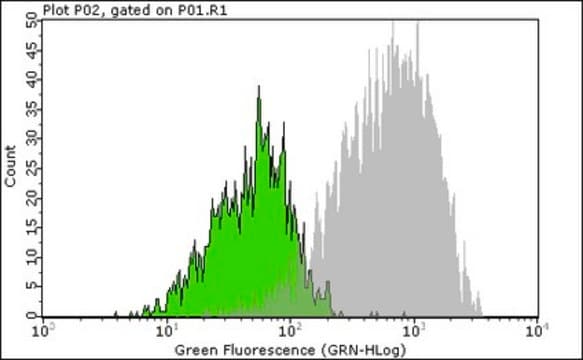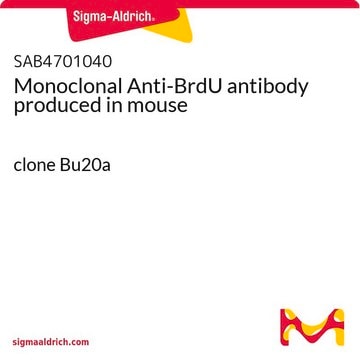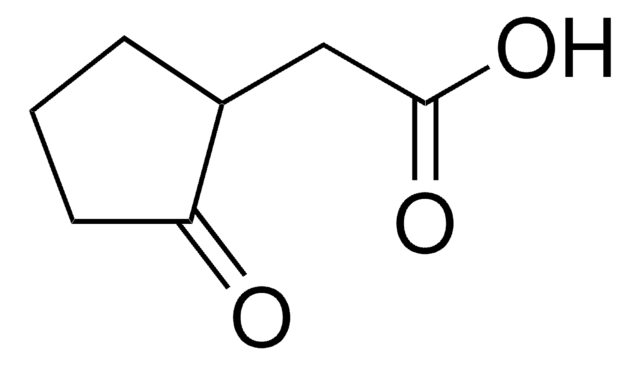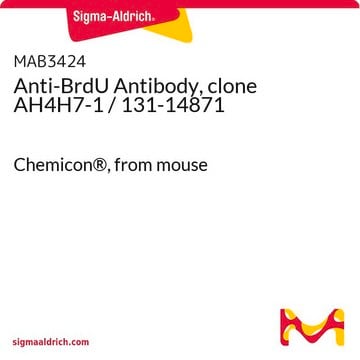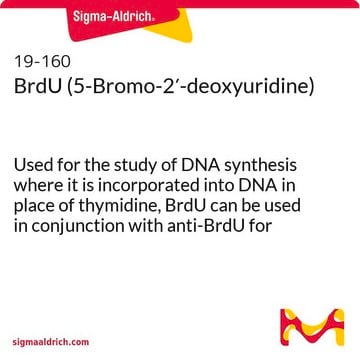MAB3262F
Anti-BrdU Antibody, clone PRB-1, FITC conjugated
clone PRB-1, Chemicon®, from mouse
Synonym(e):
BrdU
About This Item
Empfohlene Produkte
Biologische Quelle
mouse
Qualitätsniveau
Konjugat
FITC conjugate
Antikörperform
purified immunoglobulin
Antikörper-Produkttyp
primary antibodies
Klon
PRB-1, monoclonal
Speziesreaktivität (Voraussage durch Homologie)
all
Hersteller/Markenname
Chemicon®
Methode(n)
flow cytometry: suitable
Isotyp
IgG1
Versandbedingung
wet ice
Posttranslationale Modifikation Target
unmodified
Spezifität
Immunogen
Anwendung
Epigenetik & nukleäre Funktionen
Zellzyklus, DNA-Replikation & -Reparatur
Optimal working dilutions must be determined by the end user.
Physikalische Form
Lagerung und Haltbarkeit
Sonstige Hinweise
Rechtliche Hinweise
Haftungsausschluss
Sie haben nicht das passende Produkt gefunden?
Probieren Sie unser Produkt-Auswahlhilfe. aus.
Lagerklassenschlüssel
12 - Non Combustible Liquids
WGK
WGK 2
Flammpunkt (°F)
Not applicable
Flammpunkt (°C)
Not applicable
Analysenzertifikate (COA)
Suchen Sie nach Analysenzertifikate (COA), indem Sie die Lot-/Chargennummer des Produkts eingeben. Lot- und Chargennummern sind auf dem Produktetikett hinter den Wörtern ‘Lot’ oder ‘Batch’ (Lot oder Charge) zu finden.
Besitzen Sie dieses Produkt bereits?
In der Dokumentenbibliothek finden Sie die Dokumentation zu den Produkten, die Sie kürzlich erworben haben.
Kunden haben sich ebenfalls angesehen
Unser Team von Wissenschaftlern verfügt über Erfahrung in allen Forschungsbereichen einschließlich Life Science, Materialwissenschaften, chemischer Synthese, Chromatographie, Analytik und vielen mehr..
Setzen Sie sich mit dem technischen Dienst in Verbindung.

